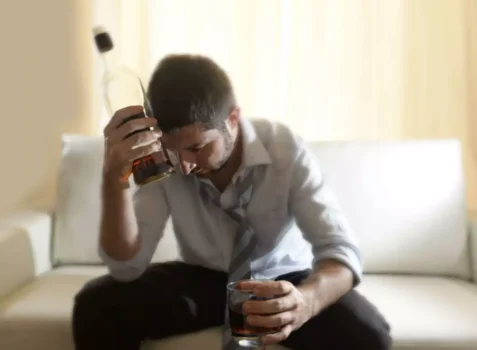Angry Drunk Psychology: Alcohol and Aggression Explained

Therapy assisted him in recognizing how past wounds contributed to his vulnerability to both anger and alcohol use. After much consideration, he eventually joined an alcohol treatment program as I helped him grieve his wounds and manage his anger. Another study explored the relationship between Posttraumatic Stress Disorder (PTSD), alcohol use, and violence (Blakey et al., 2018).
- We encourage all those struggling with substance use to seek professional help.
- Just like navigating any tough situation in life, it might not be easy, but it’s definitely worth it.
- Melody is here to help as you adjust to a life with less (or no) alcohol.
- Everyone reacts differently to various types of alcohol, so it can be difficult to pinpoint the exact type of alcohol that makes an individual aggressive.
- People who are drinking may also be more likely to ignore social cues, such as when someone is trying to de-escalate a situation.
Psychological “Baggage” and Social Influence

Alcohol can impair the OFC, and disrupt communication between the OFC and the amygdala. Without the OFC doing its job of calming those intense emotions, a person can have a strong reaction (2). Alcohol’s ability to temporarily reduce anxiety can also intensify the urge to act on impulse.
Understanding the Concept of ‘Angry Drunks’
- If you have a problem with silently harboring anger, you may likely let it spill out while drinking.
- Alcohol has the potential to significantly alter an individual’s behavior by lowering inhibitions and impairing judgment.
- Simply put, people who are usually argumentative when they are sober may be more likely to initiate a fight or become aggressive when drunk.
- It can lead to a wide range of physical and mental health issues, as well as addiction and other problems.
The relationship between alcohol and aggression is also influenced by environmental and personal factors. In social settings, alcohol’s disinhibiting effects can combine with situational triggers like crowding, noise, or perceived provocations to increase the likelihood of aggressive responses. There are also individual factors to consider, including past experiences with aggression, personality traits, and personal expectations about alcohol’s effects.
- Maybe you’ve heard from friends or a significant other that you become angry or hostile while drinking.
- Decreased cognitive function also means it’s more likely for you to misread a situation and overreact.
- The best decision you can make is often the most difficult because it may involve putting your life, your family and your career on hold.
- We need anger to stand up for ourselves and others when something is wrong.
- The reduction in activity in these regions “may reflect reduced self-awareness” in intoxicated people, they added.
- A drunk friend may appear to be acting out of character, but we don’t know what that person might be keeping under wraps, Saltz explains.
Who is at Risk of Becoming an “Angry Drunk?”
This disinhibiting aspect of alcohol in effect paves the way for feelings to dominate thoughts and behavior. As research in this field continues to evolve, we can hope for new insights and more effective treatments for those struggling with alcohol-related aggression. In the meantime, by fostering a culture of awareness, compassion, and responsibility around drinking, we can work towards reducing the harm caused by angry drunk behavior. By addressing both the psychological and physiological factors that contribute to angry drunk behavior, we can develop more effective strategies for prevention and treatment. This might involve a combination of therapy, medication, and lifestyle changes tailored to each individual’s needs.


These communities offer peer support, allowing individuals to share experiences and gain insights from others who’ve battled similar issues. Joe is generally mild-mannered but has underlying frustrations at work that he suppresses during his sober hours. When he drinks, however, these suppressed feelings of rage tend to surface and are often expressed without drug addiction any filter or restraint. The influence of alcohol on emotional regulation is complex and varies greatly among individuals but now we’ve got some insights into why folks react so differently under its sway. Alcohol works by lowering inhibitions, which means those latent feelings of irritability can quickly escalate into full-blown rage.
While psychotherapy is the primary approach for co-treatment of alcohol use and anger management, medications like mood stabilizers and those used to treat substance withdrawal may also be part of your treatment plan. Extreme emotions that are usually hidden from others, like anger and sadness, may be more noticeable when you drink because you’re less able to conceal and manage them. When they come out, others notice them because they’re not a part of the everyday social experience. Dr. Nelson has worked in the behavioral health field for more than 22 years. He has served as a clinical director, clinician, and supervisor for mental health pro- grams in acute, sub-acute, and outpatient facilities, and in primary care. The best decision you can make is often the most difficult because it may involve putting your life, your family and your career on hold.
One way to have a bit less is to alternate alcoholic drinks with a soft drink or water. Alcohol affects brain chemistry by altering neurotransmitters, which manage our mood and impulses. It decreases inhibition and can increase stress hormones like cortisol, making some individuals more prone to anger and aggression when drinking. Alcoholic rage syndrome refers to a pattern of intense anger and aggression triggered by alcohol consumption. This can range from verbal outbursts to physical violence, posing a risk not only to the individual’s health but also to those around them.
The study showed that people who https://ecosoberhouse.com/ were present-focused were bent on retaliation, whereas alcohol had little or no effect on the future-focused participants. As it pertained to the impulsive people who were not intoxicated, they also displayed more aggression and increased the intensity of the shocks, but it wasn’t to the same degree as the people who were intoxicated. Do you ever feel like a completely different person when you’ve had too much to drink?

The Difference Between Anger and Aggression
Licentious behaviors linked to drinking range from mildly annoying to downright dangerous. Looping an arm around the shoulders of an acquaintance is one thing. Acting like a sexual predator is another thing altogether, and can escalate into an act of violence.
Just like navigating any tough situation in life, it might not be easy, but it’s definitely worth it. Many people who live with mental health disorders also struggle with drug or alcohol addictions. While someone that has a why do some people get angry when they drink mental health disorder is participating in an alcohol or drug rehab program, the provider will usually address the addiction and the mental health disorder at the same time. When the person you care for is sober and no longer influenced by alcohol, they are considerably more likely to hear you out and be receptive to your feedback.
